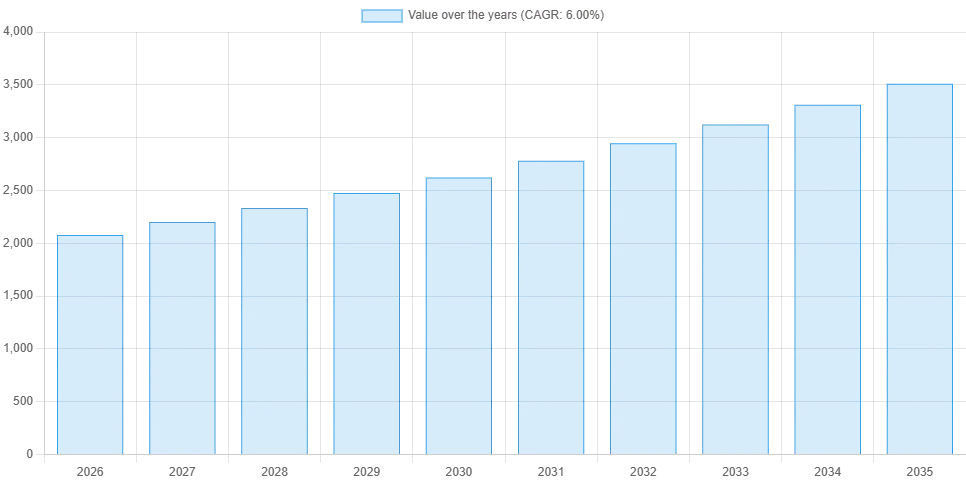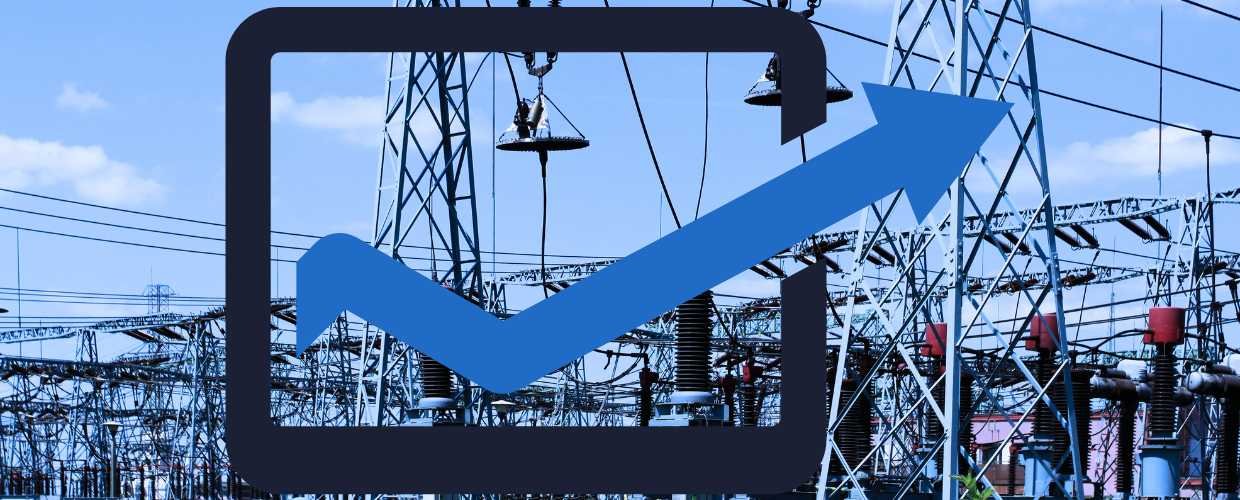The global power generation market is undergoing remarkable growth and transformation, driven by a confluence of factors shaping the future of energy production. As the world grapples with the challenges of climate change, increasing energy demands, and the pursuit of cleaner and more sustainable energy sources, the power generation market is at the forefront of these critical developments.
Power Generation Market Analysis
The approximate decision of the Techgolly market analysis team is that the global Power Generation market was valued at least USD 2,078 billion in 2026 and continues to be projected to reach USD 3,510.74 billion by 2035. Growth will continue at a compound annual growth rate (CAGR) of 4% to 6% from 2026 to 2035.

Reasons for Power Generation Market Growth
The power generation market is poised for continued expansion and innovation as the world seeks cleaner, more reliable, and sustainable power sources. The primary reasons behind its growth are discussed below.
Rising Global Energy Demand
The world’s population and energy demand continue to grow. Increasing urbanization, industrialization, and the proliferation of electronic devices are driving up electricity consumption. This escalating demand necessitates the expansion and upgrading of power generation infrastructure.
Transition to Renewable Energy
The global shift towards cleaner and more sustainable energy sources, such as solar, wind, hydro, and geothermal power, is a pivotal driver of market growth. Governments and organizations invest heavily in renewable energy projects to reduce carbon emissions and combat climate change.
Advancements in Energy Storage
Energy storage technologies, including advanced batteries and grid-scale storage solutions, are revolutionizing the power generation landscape. These innovations enable the efficient storage of excess renewable energy during peak demand periods or when renewable sources are intermittent.
Energy Efficiency Measures
Energy efficiency initiatives and regulations are spurring investments in power generation systems that maximize energy output while minimizing waste. Combined-cycle gas turbine (CCGT) plants and cogeneration facilities are examples of efficient power generation technologies gaining prominence.
Decentralization and Distributed Energy Resources (DERs)
The rise of DERs, such as rooftop solar panels and small-scale wind turbines, decentralizes power generation. This trend empowers individuals and businesses to generate electricity, reducing reliance on centralized power grids and fostering market growth in microgrids and innovative grid technologies.
Government Policies and Incentives
Governments worldwide implement policies and incentives to promote clean energy adoption and reduce carbon emissions. Subsidies, tax credits, and renewable energy targets encourage renewable power generation infrastructure investments.
Technological Innovation
Ongoing research and development in power generation yield breakthroughs in energy conversion efficiency and cost reduction. Advanced technologies like advanced nuclear reactors, concentrated solar power, and next-generation wind turbines are driving growth in the industry.
Electrification of Transportation
The electrification of transportation, including electric vehicles (EVs) and charging infrastructure, is increasing electricity demand. The power generation sector must expand to ensure an adequate and sustainable energy supply to support the trend.
Energy Access in Emerging Markets
Developing nations strive to provide reliable and affordable electricity to their growing populations. It necessitates new power generation capacity investments, often focusing on clean and sustainable energy sources.
Resilience and Grid Modernization
Climate-related disasters and cyber threats underscore the importance of resilient power generation and modernized grids. Investments in backup power systems, microgrids, and modernization technologies fuel market growth.
Key Market Players
The major Power Generation vendors are Électricité de France SA, Enel SpA, Tokyo Electric Power Company (TEPCO), State Power Investment Corporation, General Electric (GE), E.ON SE, Engie, Siemens AG, Southern Company, Exelon Corporation, ExxonMobil, Datang International Power Generation Company Ltd., Power Grid Corporation of India Ltd., Chevron Corporation, ABB Ltd. Inc., AES Corporation, NTPC Limited, Tata Power, and Huaneng Power International Inc.





